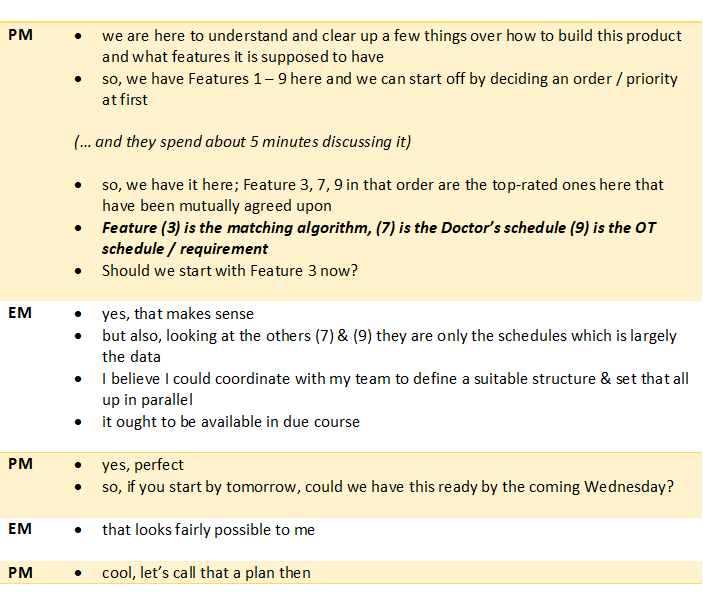Ownership, a Virtue
Talking of teams & the way they function one can’t overlook / refute the importance of healthy collaboration. Where does “ownership” stand, is it a precursor to or a resultant of that collaboration?
1.0 The Mundane…
1.1 Background
At an early stage start-up that was into healthcare, a team of 12, comprised of young people carrying an average of 3-4 years of experience under their belt in their respective streams were working towards building a product.
1.2 The Product
To help hospitals furnish their OT requirements via a roster & find matches for the best surgeons whose schedules match the dates, in an attempt to make it easier for hospitals & surgeons to find each other avoiding the trouble of calls altogether over their busy schedules.
1.3 Team Composition
The team was made up of:
→ a young product manager (PM) who unfortunately / fortunately had too many roles to play that might have been mammoth of an ask over all of these:
a visionary over setting the long-term vision of the product
a strategist who was accountable to stitch a workable strategy over how they planned to achieve that vision
a leader who was supposed to bind the team over those goals transforming them into individual deliverables as applicable
and of course, a product person who was supposed to lead the team on their way out of all the clutter and towards executing the roadmap smoothly
→ an engineering manager (EM) who was calling the shots on all the Tech stacks to be employed
→ full stack engineers who were hired to start working towards the UI part of it and also the defining the database structure et. al.
1.4 The Discussion
So, here’s the deal. One Wednesday, the PM & the EM get together & start to brainstorm supposedly over the what & the how of the product.
The PM kicks off the agenda:
2.0 The “Missing” Block(s)!
In case you read through the entire segment above (the conversation included) and thought about it for a while and said, “Wow! That’s progress, that is!” then brace yourself, for what’s to come isn’t going to be a pleasant ride at all.
There are many things that are gone amiss over that conversation.
Let’s attempt to list them all out one by one.
Just one question at the end of this section now!
Could all these 14 points listed above, which are more than ticking timebombs that certainly are going to the send teams and the whole organization into a total tizzy be averted by the people involved?
(Pssst…… - The answer, obviously in the Lord’s name is a screaming “YES”!)
And, if YES. How?
3.0 Taking Ownership
Well! The answer is fairly simple, really. “Ownership”!
There is a myth that’s been around for ages now amongst the lesser known software & IT teams that taking ownership would in all certainty mean more workload.
What if I told you taking ownership would help you reduce your workload?
It sounds surreal, does it? Well, if you begin to drilldown over that premise a bit, you’d understand that it’s actually is true. If you are completely self-aware about you’re the scope of your work and also have a big picture view of how your contribution is effectively going to reflect in terms of the value additions then you might have very well managed to begin treading up the first steps of that ownership staircase.
Also, ownership is like a plague in a good way though, as those questions one-person pops in the process could be good enough for all people involved and there ought to be no doubt over how it could help clear up matters for those teams concerned.
And, for a start, what does it really take?
Just 5 important questions:
- What? Why? Whom? Who? & finally get to How?
So, circling back to our conversation now, the centerstage of this article, lets drilldown on how things could have worked out differently if both the PM & EM had factored in that sense of ownership into their workflow before & during that meeting.
NOTE: There has been a noticeable trend off late especially true in the case of most startups where they seem to have done away with the term HR and have got to redefining it as talent acquisition.
Though am not really aware and don’t want to get into what roles they exactly play internally, there is this whole awareness that they seem to carry about what is required for someone to succeed in a given role that is product based like:
the passion
the alignment
the penchant to accomplish something, bias for action
not being afraid of failure
the attitude to never stop learning









